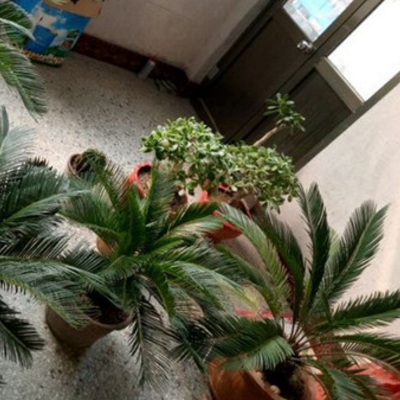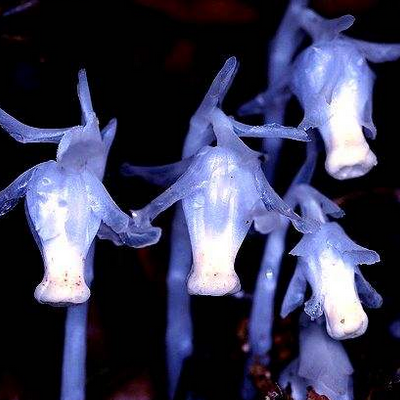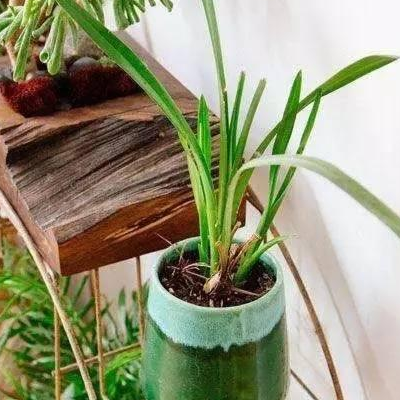What if the cycad leaves grow too long? what if the leaves turn yellow?
Cycad, this is a kind of plant, this cycad is generally used for ornamental, it is not so easy to raise this cycad well, what if the cycad leaves are too long? What if the cycad leaves turn yellow:

What if the cycad leaves are too long:
1. Lack of light
The leaves of cycads are too long, in fact, the main reason is lack of light. In the placement of cycads, put it in a too hidden place, so that it can not be exposed to sufficient light, there will be excessive growth of leaves, thin and long, affecting the ornamental.
If the leaves of cycads grow normally, they should be exposed to sufficient light, preferably in a sunny place indoors, not indoors.
2. Improper water and fertilizer
When raising cycads, if the water and fertilizer are not controlled properly, it is easy to have the phenomenon of excessive growth of leaves. The reason may be too much watering, no timely water control, or too much fertilization, especially during leafing.
When the leaves of cycads are growing, they should not be watered too frequently, usually once every 10 days, and can be sprayed frequently. Don't fertilize too often or too much. Generally, after the leaves of cycads are mature, water and fertilizer management is carried out normally.
What if the cycad leaves turn yellow:
One: lack of light
In the period of cycad growing new leaves, it is necessary to maintain the whole sun until the leaves harden and then move to the semi-shade. If sufficient light is not guaranteed during the growing period, it is easy to cause the leaves to turn yellow.
Second, improper watering
Improper watering can be divided into two cases: overwatering and underwatering. In the growth period of the new leaves of Tieshu, it is necessary to provide sufficient water, but do not let the basin soil wet for a long time, otherwise the roots are easy to lack oxygen, resulting in poor plant growth, and then the leaves are yellowed. Of course, lack of water can also cause leaves to yellow. the specific characteristics are that the leaves turn yellow from the bottom up, and the old leaves turn yellow first. if they are not watered in time, the leaves of the whole plant will turn yellow and even die.
Third, improper fertilization
If you apply too much fertilizer, or if the concentration of fertilizer is too high, it will also cause the cycads leaves to turn yellow. The young leaves are thick and glossy, and the surface is uneven. The solving measures are to control the use of fertilizer, middle ploughing and proper watering. If the young leaves and tender stems of Cycas begin to yellowing first, it is likely to be caused by insufficient fertilization and long interval of fertilization. At this time, it is necessary to apply fertilizer in time, otherwise it will lead to yellow leaves and even death of the whole plant. It should be noted that a large amount of heavy fertilizer should not be applied at one time, otherwise it will cause root burning.
Four: soil partial alkali
Cycads like slightly acidic sandy soil, soil alkalization will also make cycads leaves yellow, you can use ferrous sulfate solution 500 times the solution to irrigate basin soil, once a week, continuous irrigation several times, can alleviate the yellowing degree of leaves.
Five: diseases and insect pests
Diseases and insect pests are also one of the reasons for the yellowing of cycad leaves. Carefully observe whether there are red spiders and shell insects on the leaves and spray them in time for corresponding control. If macula appears on the leaves, carbendazim can be sprayed to kill bacteria.
This is the end of the treatment of long cycad leaves and yellowing leaves, but we should pay attention to them.
What if the cycad leaves turn yellow?
Cycads are evergreen plants. The stems are stout, and the height of the plant can reach 8m. The florescence is from July to August. Dioecious, with male flowers on the inside of the leaf and female flowers on the top of the stem. Cycad cultivation is relatively easy, but in the maintenance process, the leaves often appear yellow, leaf tip scorched phenomenon, affecting the beauty, here we should especially talk about the "five precautions" in the process of cycad maintenance.
Prevent iron deficiency. Cycads like iron, because the soluble iron in potted soil is limited, so we should often supplement iron fertilizer to prevent iron deficiency yellowing. The method is to spray 0.2% ferrous sulfate every two or three weeks or add 0.5% ferrous sulfate when fertilizing. If you put the scrap iron on the surface of the basin soil and let it rot and make the iron seep into the basin, it can also play a role in preventing iron deficiency from yellowing.
Lack of or excessive protection from sunlight. Cycad is a positive tree species, but in the continuous high temperature and hot sun exposure, the leaves are easy to be burned by the scorching sun and cause the dry tip to turn yellow, especially when the new leaves have not yet extended, it is necessary to properly shade. However, if it is kept in the dark for a long time, it will also make the leaves green and reduce the ornamental value. Therefore, in spring, autumn and winter, cycads should be placed in sunny places, while in summer, cycads should be moved to shady places, or on balconies or windows under sunshade to avoid strong light.
The dry and wet soil of anti-basin soil is uneven. The fleshy roots of cycads can withstand moderate drought, but not waterlogging, and the potted soil can be drier when cultivated. If the basin soil is too wet continuously, it will weaken the respiration of roots, affect the absorption of water and inorganic salts, and cause the leaves to shrink from bottom to top, and in severe cases, the roots will gradually blacken and the plants will die. Of course, the potted soil should not be too dry, otherwise the leaves will turn yellow and even the whole plant will die. The principle of watering is to see dry and wet (that is, after watering once, the basin soil will be watered again when the soil is dry). If it is not dry, it will be thoroughly watered. Especially in winter, the basin soil does not need to be watered, which can prevent yellowing caused by improper watering.
In addition, due to the low indoor air humidity in winter in northern China, cycads often have dull leaves, scorched edges or dry tips of leaves, so measures such as foliar spraying, ground spraying or air spraying are often carried out to increase air humidity.
Prevent the stickiness of the soil. Cycads do not have strict requirements on soil, but they like sandy soil with good drainage, loose and fertile soil, and avoid clayey soil with poor drainage, otherwise it will cause rotting roots yellowing or even decay due to lack of oxygen. Pot soil can be mixed with 6 parts of garden soil, 3 parts of rotten leaf soil and 1 part of rice chaff ash.
Keep out of the cold. Cycads like to be warm and afraid of cold, and suffer frost damage when the temperature is below 0 ℃. In the area north of the Huaihe River in China, the temperature in winter is often lower than 0 ℃, and the fleshy roots of cycads are easy to freeze, resulting in yellowing leaves and even the whole plant. Therefore, in winter, we should pay attention to anti-freezing and keep warm, so that the overwintering temperature is not lower than 5 ℃. In addition, turning over the basin and changing the soil prematurely during the dormant period of cycads in February and March is also easy to cause cycads to freeze and cause scorch.
In addition, there is one more point to remind flower friends, cycads are vulnerable to shell insects in the case of poor ventilation, and the damaged parts of chlorophyll are absorbed, which will also lead to leaf yellowing, which should be prevented and treated in time. Thank you for your support and attention to the succulent flower bed!
The cause of yellowing of cycad leaves and its solution
One of the reasons for the yellowing of cycad leaves and its solution: lack of light
In the period of cycad growing new leaves, it is necessary to maintain the whole sun until the leaves harden and then move to the semi-shade. If sufficient light is not guaranteed during the growing period, it is easy to cause the leaves to turn yellow.
The second reason: improper watering
Improper watering can be divided into two cases: overwatering and underwatering. In the growth period of the new leaves of Tieshu, it is necessary to provide sufficient water, but do not let the basin soil wet for a long time, otherwise the roots are easy to lack oxygen, resulting in poor plant growth, and then the leaves are yellowed. Of course, lack of water can also cause leaves to yellow. the specific characteristics are that the leaves turn yellow from the bottom up, and the old leaves turn yellow first. if they are not watered in time, the leaves of the whole plant will turn yellow and even die.
The third reason: improper fertilization
If you apply too much fertilizer, or if the concentration of fertilizer is too high, it will also cause the cycads leaves to turn yellow. The young leaves are thick and glossy, and the surface is uneven. The solving measures are to control the use of fertilizer, middle ploughing and proper watering. If the young leaves and tender stems of Cycas begin to yellowing first, it is likely to be caused by insufficient fertilization and long interval of fertilization. At this time, it is necessary to apply fertilizer in time, otherwise it will lead to yellow leaves and even death of the whole plant. It should be noted that a large amount of heavy fertilizer should not be applied at one time, otherwise it will cause root burning.
The fourth reason is that the soil is alkaline.
Cycads like slightly acidic sandy soil, soil alkalization will also make cycads leaves yellow, you can use ferrous sulfate solution 500 times the solution to irrigate basin soil, once a week, continuous irrigation several times, can alleviate the yellowing degree of leaves.
Reason 5: diseases and insect pests
Diseases and insect pests are also one of the reasons for the yellowing of cycad leaves. Carefully observe whether there are red spiders and shell insects on the leaves and spray them in time for corresponding control. If macula appears on the leaves, carbendazim can be sprayed to kill bacteria.
- Prev

Why is crystal orchid called the flower of death poisonous?
The flower of death sounds like a scary feeling, but it is actually a rare flower called crystal orchid, so let's take a look at it.
- Next

Baking soda can kill slugs.
Baking soda, this is super common in life, but do not underestimate this baking soda, can be used to grow flowers, what are the methods of baking soda: fungicides, mixed with 4 teaspoons of baking soda with 4 liters of water, used to kill virus and sterilization is very effective. Cabbage worm, powdered with proper baking soda and flour
Related
- Fuxing push coffee new agricultural production and marketing class: lack of small-scale processing plants
- Jujube rice field leisure farm deep ploughing Yilan for five years to create a space for organic food and play
- Nongyu Farm-A trial of organic papaya for brave women with advanced technology
- Four points for attention in the prevention and control of diseases and insect pests of edible fungi
- How to add nutrient solution to Edible Fungi
- Is there any good way to control edible fungus mites?
- Open Inoculation Technology of Edible Fungi
- Is there any clever way to use fertilizer for edible fungus in winter?
- What agents are used to kill the pathogens of edible fungi in the mushroom shed?
- Rapid drying of Edible Fungi

